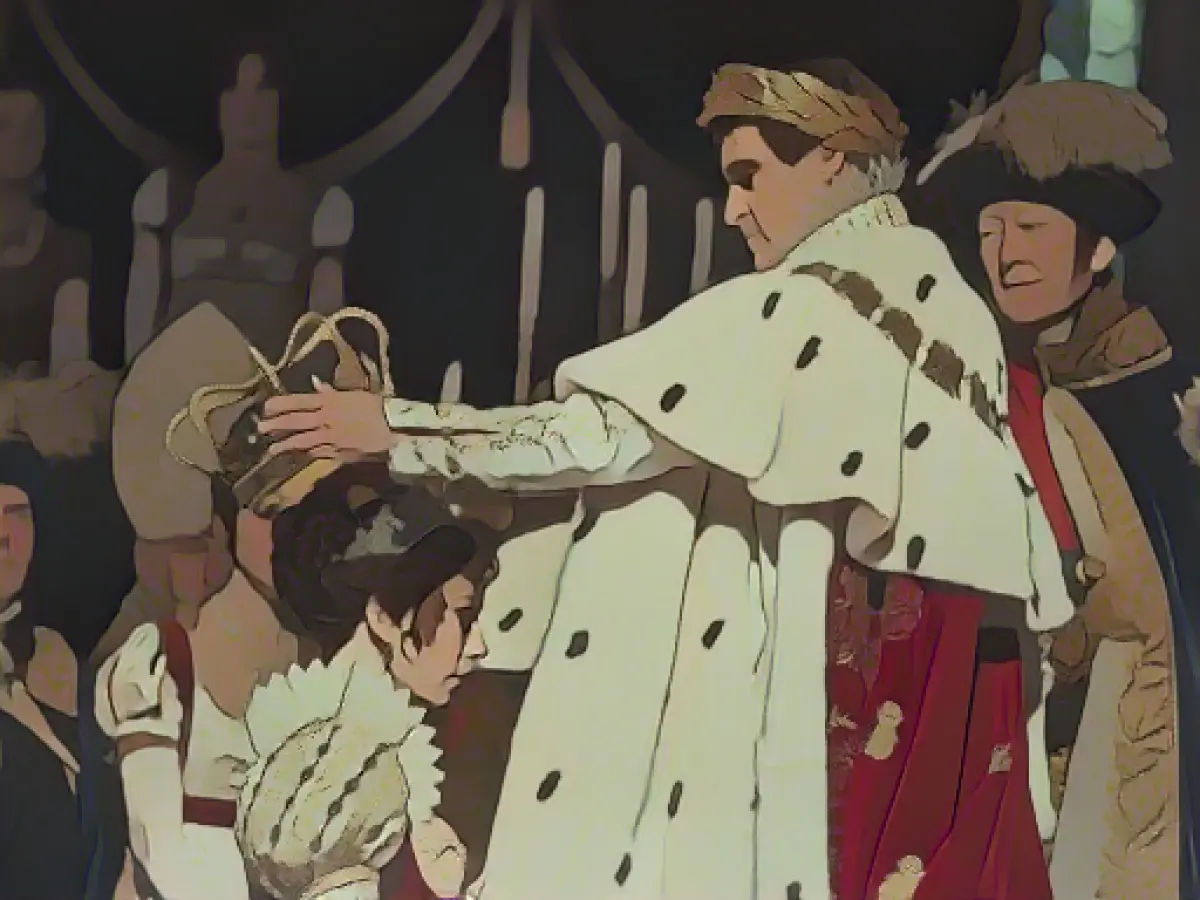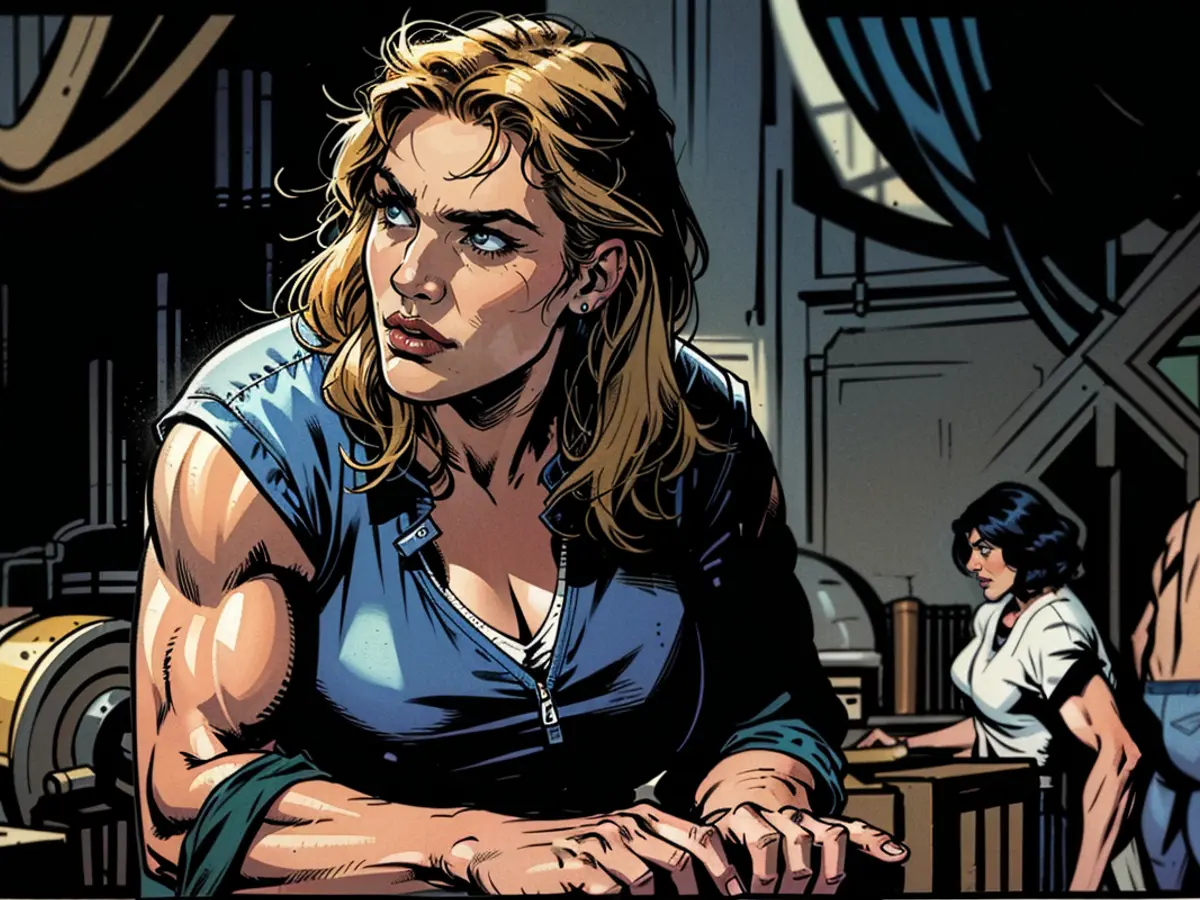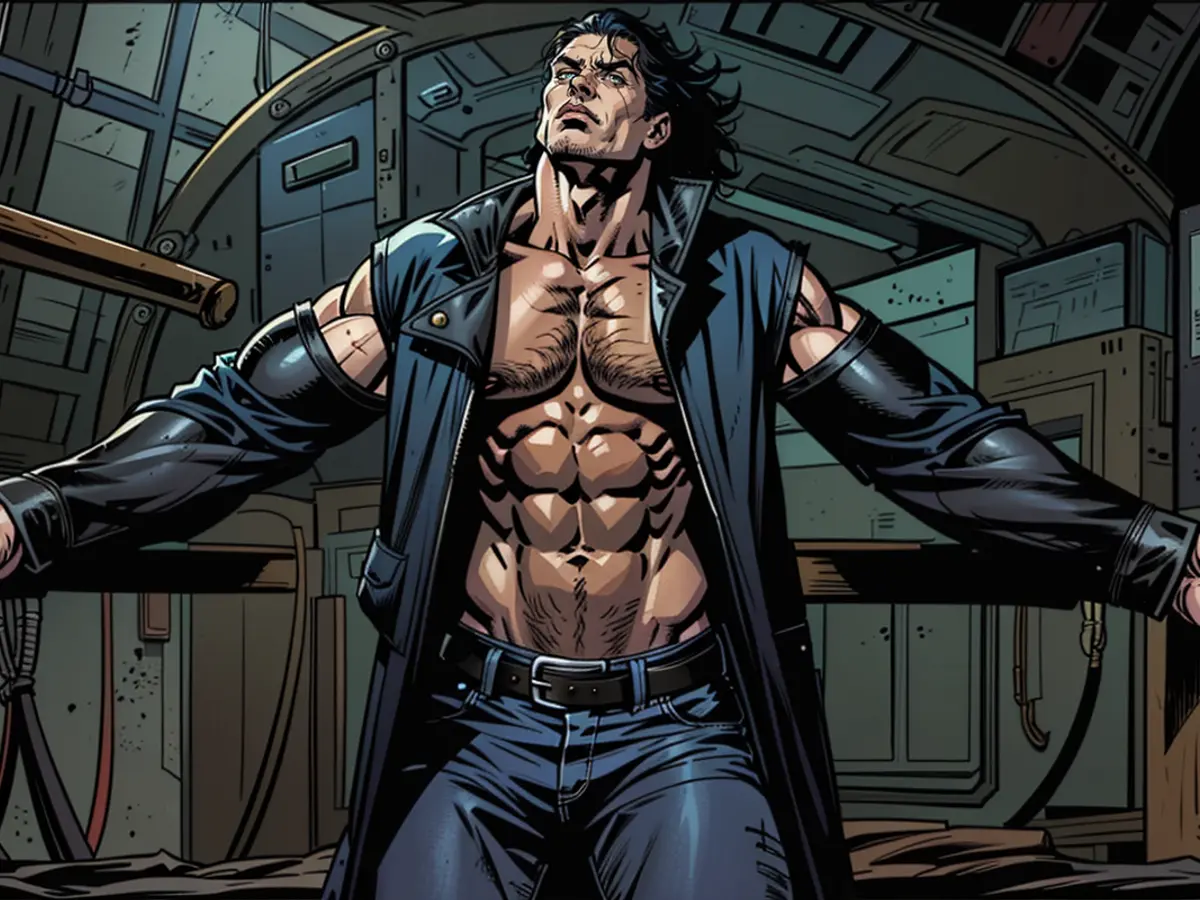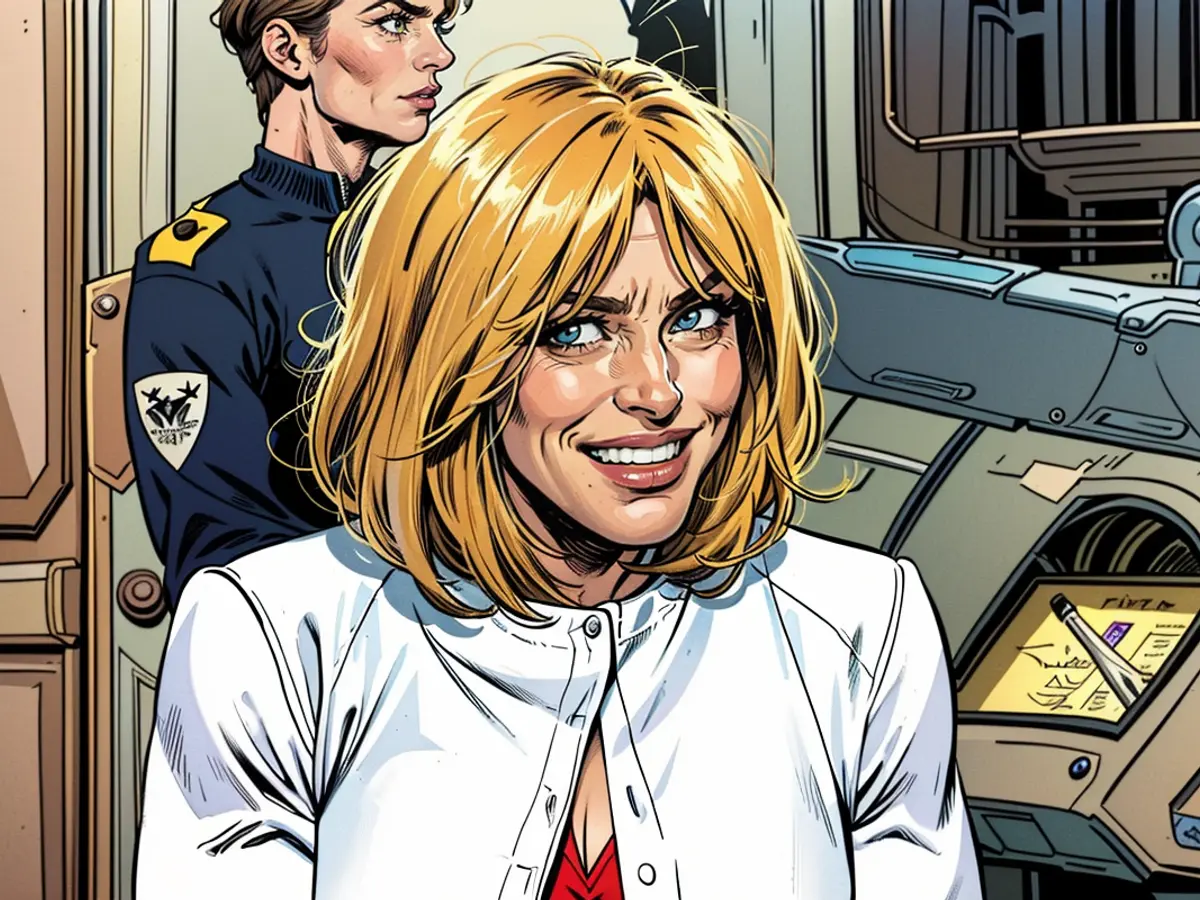"Napoleon": Joaquin Phoenix as the Emperor of France
Cannonballs tearing apart horses and soldiers, carcasses floating in the water under the ice: Grandiose battle scenes, interspersed with scenes of Napoleon Bonaparte and his wife Joséphine de Beauharnais, six years his senior. The famous French emperor was just as addicted to her as he was to his hunger for power.
In "Napoleon", old master Ridley Scott paints a portrait of Napoleon that draws a parallel between his conquest of power and his turbulent relationship with Joséphine. He conquered the world in order to win her love, and when he failed to do so, he conquered her in order to destroy her, destroying himself in the process, the legendary director explained his intention to the film magazine "Deadline".
At a cost of around 130 million, the 85-year-old filmmaker has made a major battle movie and brought Joaquin Phoenix back in front of the camera after 23 years alongside Vanessa Kirby ("Mission: Impossible - Dead Reckoning"). The Hollywood star played the supporting role of the mad and merciless Emperor Commodus in 2000's "Gladiator".
Strict and gloomy character
For Scott, only Phoenix could embody Napoleon. In "Gladiator", he created one of the most complex emperors in film history, he told the industry magazine "Deadline". And he will create another one with his "Napoleon".
The 49-year-old actor cuts a stern and sombre figure on the battlefield - reminiscent of his Roman emperor in Scott's "Gladiator" - while at the same time playing the clown as he flees from politicians and looks deep into the eyes of a pharaoh's mummy. Phoenix skillfully masters this paradox and defiantly responds to Joséphine's comment that Napoleon is fat: Fate had wanted him to be here, fate wanted him to eat this lamb chop.
Scott is very familiar with historical frescoes. In addition to "Gladiator" with Russell Crowe, we also have him to thank for "1492 - The Conquest of Paradise" with Gérard Depardieu. From "Napoleon", he has once again created a visually impressive epic, albeit with less impressive and spectacular sets than in "Gladiator". Scott's cinema, which films history as a machine of relentless human destruction, is at its most impressive in the battle scenes at Austerlitz.
Borrowings from painting
The epic shows battle scenes that made Napoleon famous: the victory at Toulon against the British army in 1793, the Egyptian campaign, the coup d'état in 1799 and the Russian campaign. Borrowings from the imagery of the painters Jacques-Louis David and Jean-Léon Gérôme provide some visually captivating moments.
Anyone who brings such an imposing historical figure as Napoleon to the big screen inevitably runs the risk of exposing themselves to the judgment of a broad public with many experts. As soon as the trailer went online, the first reactions began to pour in. Napoleon specialists criticized, among other things, that the film shows Bonaparte during the execution of Queen Marie-Antoinette (where he is not supposed to have been). A scene with which the film begins in a visually impressive way.
Focus on the characters
Scott has made a movie on the border between history and fiction. The movie is not a historical biography. He concentrates on the characters of the protagonists and their emotions, Phoenix told dpa in Paris, where the world premiere of the film took place in the Army Museum. Napoleon's grave is located under the adjacent cathedral.
Scott has long been interested in the man who became Emperor of France at the age of 35 and ended his life in exile on St. Helena (a small volcanic island in the middle of the Atlantic). For him, he was a fascinating character, he told dpa in Paris. He simply embodied everything, the good and the bad.
Napoleon met Joséphine at a ball in 1795, where he immediately fell in love with the 32-year-old widow with two children. The wedding took place just one year later. Because she did not bear him any children, he divorced her in 1810 in order to marry Marie-Louise of Austria. Napoleon wrote over 200 love letters to Joséphine. Many of them are quoted in the film.
Scott constructs an interesting, both romantic and tragic love and later friendship. However, the relationship between the two, which forms the emotional core of the story, leaves one somewhat cold. Little of the osmosis between the protagonists with contrasting characters and ambitions comes across.
Two hours and 38 minutes is not much time to cover the rise and fall of Napoleon in detail. A director's cut of a full four hours has already been announced and will be released on AppleTV+. As the legendary director told the film magazine "Empire", the long version should be "fantastic" and also include more of Joséphine's life.
After immersing viewers in grandiose battle scenes and the turbulent relationship between Napoleon and Joséphine, the cinematic adaptation of "Napoleon" invites audiences to the cinema once again, showcasing Joaquin Phoenix's portrayal of the legendary emperor. The film, Masterfully directed by Ridley Scott, presents Phoenix as a stern and somber figure on the battlefield, reminiscent of his Roman emperor role in "Gladiator".
Specifically, fans of historical epics and Ridley Scott's filmography can look forward to "Napoleon" as it contains visually captivating battle scenes based on the works of renowned painters like Jacques-Louis David and Jean-Léon Gérôme, alongside an exploration of Napoleon's tumultuous love for Joséphine de Beauharnais.
Source: www.dpa.com







